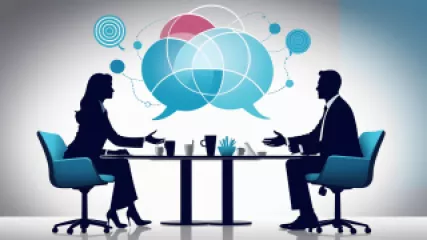How to Effectively Manage Conflicts in the Workplace
Mastering Workplace Conflict: A Comprehensive Guide with Expert Insights
Conflict is a natural part of any work environment, and when managed effectively, it can actually be a catalyst for positive change and growth. However, when left unresolved, workplace conflicts can escalate, leading to decreased productivity, low morale, and a toxic work culture. In this comprehensive guide, we'll dive into the strategies and techniques that can help you navigate and resolve conflicts in the workplace with confidence.
Understanding the Roots of Workplace Conflict
Conflicts in the workplace can arise from a variety of factors, including personality clashes, differences in work styles, limited resources, unclear roles and responsibilities, and poor communication. Natalia Mejia, a conflict resolution expert, explains, "Conflicts often stem from unmet needs or perceived injustices. By understanding the underlying causes, we can develop more effective solutions."
One common source of conflict is the competition for limited resources, such as budget, equipment, or even recognition. Xavier Jackson, a human resources manager, notes, "When employees feel that their access to resources is being unfairly restricted, it can lead to resentment and adversarial relationships."
Another common trigger for workplace conflicts is a lack of clear communication and defined roles. Lena Gibson, a team-building consultant, shares, "When there's ambiguity around who is responsible for what, it can create confusion and overlap, leading to frustration and finger-pointing."
Developing a Conflict Management Mindset
Effective conflict management starts with a shift in mindset. Instead of viewing conflicts as inherently negative, we can reframe them as opportunities for growth and understanding. Lonny Morales, a leadership coach, suggests, "Approach conflicts with curiosity and a willingness to listen. See them as a chance to deepen your relationships and find creative solutions."
A key aspect of this mindset is developing emotional intelligence, which encompasses self-awareness, empathy, and the ability to manage one's own emotions. Natalia Mejia explains, "When we can recognize and regulate our own emotional responses, we're better equipped to navigate conflicts constructively and find common ground."
Strategies for Resolving Workplace Conflicts
With the right mindset in place, you can begin to implement practical strategies for resolving conflicts in the workplace. One proven approach is the CALM method, which stands for:
- Communicate - Open a dialogue and actively listen to the other party's perspective. Seek to understand, not just to be understood.
- Analyze - Identify the root causes of the conflict and explore the underlying needs and interests of each party.
- Locate - Find the common ground and areas of agreement that can serve as a foundation for a resolution.
- Mutually Agree - Collaborate to develop a solution that addresses the concerns of both parties and leads to a win-win outcome.
Xavier Jackson adds, "It's also important to establish clear expectations and ground rules for how conflicts will be addressed within the organization. This helps create a culture of trust and accountability."
Conflict Resolution Techniques
In addition to the CALM method, there are several other conflict resolution techniques that can be effective in the workplace:
Negotiation
Negotiation involves finding a mutually agreeable solution through open communication, compromise, and a focus on shared interests. Lonny Morales advises, "When negotiating, be prepared to make concessions and find creative ways to meet each party's needs."
Mediation
Mediation is the process of enlisting a neutral third party to facilitate the conflict resolution process. Lena Gibson explains, "A skilled mediator can help both parties explore their perspectives, identify the underlying issues, and work towards a mutually acceptable solution."
Collaboration
Collaborative problem-solving involves working together to find a solution that addresses the concerns of all parties. Natalia Mejia suggests, "Encourage open dialogue, active listening, and a willingness to consider multiple perspectives. This fosters a sense of shared ownership in the outcome."
Fostering a Culture of Conflict Resolution
Ultimately, effective conflict management in the workplace requires a holistic approach that goes beyond just resolving individual conflicts. It's about cultivating a culture that embraces conflict as an opportunity for growth and actively supports conflict resolution.
Xavier Jackson emphasizes the importance of providing training and resources to help employees develop their conflict management skills. "When everyone in the organization has the tools and knowledge to navigate conflicts constructively, it creates a more resilient and productive work environment."
Lena Gibson also highlights the need for strong leadership support. "Leaders who model empathy, open communication, and a problem-solving mindset can set the tone for the entire organization. Their commitment to conflict resolution can inspire and empower employees to do the same."
Conclusion: Embracing Conflict as a Catalyst for Positive Change
Conflict in the workplace is inevitable, but it doesn't have to be a source of anxiety or dysfunction. By developing a conflict management mindset, implementing proven strategies and techniques, and fostering a culture of open communication and collaborative problem-solving, you can transform conflicts into opportunities for personal and organizational growth.
Remember, the key to effective conflict management is to approach it with empathy, flexibility, and a genuine desire to understand the other party's perspective. With the right tools and mindset, you can navigate even the most challenging workplace conflicts and emerge stronger, more resilient, and better equipped to tackle future challenges.






